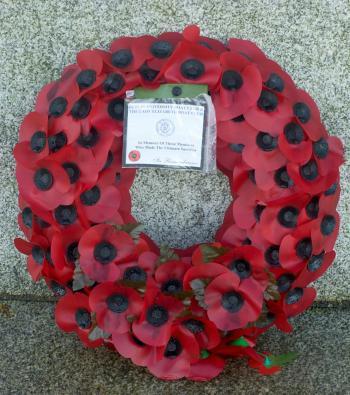During the First World War, soldiers from both sides got together and celebrated the Christmas with mutual respect and joy. How did this happen? How were they able to transcend enemy roles and fraternize together?
At that time, the war had hardly begun. Press reports suggested that the previous weeks there was no sense of impending crisis. People were enjoying themselves as usual, including heads of state. In Germany the Kaiser left for a yachting holiday in the Norwegian fjords. The French president made plans to visit Russia. In Britain a conference opened on the issue of home rule in Ireland. Reports suggest that the impending war was not taken seriously. Instead it was expected to be nothing more than a jolly little war.
However, fall season soon came. The early British success was short-lived. At this point safety could only be found—by digging in. Soon there were 497 miles of trenches from the English Channel to the Swiss border. The soldiers were feeling safer, and Christmas was approaching.
Christmas Day was described as one of the most notable and unusual events of the First World War. There was an informal truce along the sections of the Ypres battlefield. Hence troops from both sides, openly fraternized in the land known as no man’s land. It began in the lull of the fighting on Christmas Eve. After dark, German’s lit up a Christmas tree and began to sing carols, and before long, men from both sides came over the top of their trenches, shook hands, and wished each other a merry Christmas. They exchanged gifts of cigarettes as well as souvenirs such as cap badges and photographs. Some even exchanged addresses. On St. Stephen’s Day, a football match was arranged and photographs were taken.
The truce involved hundreds of soldiers. It gave both sides the opportunity to bury their dead. This event was described as an oasis of sanity in a deadlocked war. The authorities saw this as a threat to the fighting spirit of their troops. Steps were taken to ensure the episode would never be repeated.
One explanation of this unusual happening is that earlier in the year, the Pope had proposed a Christmas Day truce. Many of the soldiers were from Catholic areas, such as Bavaria in German, and Ireland. It is possible that the unofficial truce was an attempt to implement the Pope’s wishes. Or it may have sprung from an innate human goodness, which led men to reach across enemy lines and celebrate together.
At that time, the war had hardly begun. Press reports suggested that the previous weeks there was no sense of impending crisis. People were enjoying themselves as usual, including heads of state. In Germany the Kaiser left for a yachting holiday in the Norwegian fjords. The French president made plans to visit Russia. In Britain a conference opened on the issue of home rule in Ireland. Reports suggest that the impending war was not taken seriously. Instead it was expected to be nothing more than a jolly little war.
However, fall season soon came. The early British success was short-lived. At this point safety could only be found—by digging in. Soon there were 497 miles of trenches from the English Channel to the Swiss border. The soldiers were feeling safer, and Christmas was approaching.
Christmas Day was described as one of the most notable and unusual events of the First World War. There was an informal truce along the sections of the Ypres battlefield. Hence troops from both sides, openly fraternized in the land known as no man’s land. It began in the lull of the fighting on Christmas Eve. After dark, German’s lit up a Christmas tree and began to sing carols, and before long, men from both sides came over the top of their trenches, shook hands, and wished each other a merry Christmas. They exchanged gifts of cigarettes as well as souvenirs such as cap badges and photographs. Some even exchanged addresses. On St. Stephen’s Day, a football match was arranged and photographs were taken.
The truce involved hundreds of soldiers. It gave both sides the opportunity to bury their dead. This event was described as an oasis of sanity in a deadlocked war. The authorities saw this as a threat to the fighting spirit of their troops. Steps were taken to ensure the episode would never be repeated.
One explanation of this unusual happening is that earlier in the year, the Pope had proposed a Christmas Day truce. Many of the soldiers were from Catholic areas, such as Bavaria in German, and Ireland. It is possible that the unofficial truce was an attempt to implement the Pope’s wishes. Or it may have sprung from an innate human goodness, which led men to reach across enemy lines and celebrate together.



